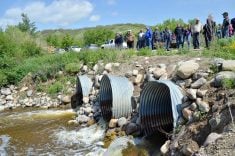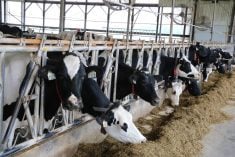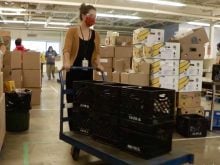ELECTION KAP says rural infrastructure must be renewed to allow for value-added production
Both Brian Pallister and Wab Kinew have promised renewed investment in infrastructure if elected. What remains to be seen is how this will address the rural infrastructure needs Keystone Agricultural Producers called a key election issue.
“The $350-million-a-year provincial spending (on) infrastructure does not come close to dealing with the $11-billion infrastructure deficit our province is faced with,” KAP president Bill Campbell told reporters at a July 2 press conference.
On August 16, the Progressive Conservative party promised that if elected, it would increase the provincial highways program to $400 million from the current $350 million, according to a news release. This would include dedicated funds for infrastructure projects.
Read Also

Canadian Cattle Association names Brocklebank CEO
Andrea Brocklebank will take over as chief executive officer of the Canadian Cattle Association effective March 1.
“It will ensure that, in addition to maintenance of the highways used every day by agricultural producers to get their products to market,” said Blaine Pederson, PC candidate for Midland.
He added that this would help advance value-added processing projects like the Roquette pea-processing plant near Portage la Prairie.
On Aug. 21, the NDP promised $6.64 billion in infrastructure spending if it were elected.
“This investment would be spread out across the province so that all families and businesses can benefit,” a campaign spokesperson told the Co-operator.
“We need to be sure that rural infrastructure is part of the strategy,” Campbell told the Co-operator.
He said that the focus of agriculture is shifting from export to value-added processing. These industries will require around-the-clock supply all year long, said Campbell.
“We need to make sure the roads allow us to do that,” he said. This needs to include roads that are reliable during spring breakup, and bridges that can accommodate semi-trucks and trailers.
Campbell, who farms south of Brandon, said that in his area there are roads he refuses to travel.
“It just beats my truck up,” he said, adding this limits his access to market.
Better roads would allow more efficient movement of products, said Campbell. This would affect prices, and greenhouse gas emissions.
Campbell said that so far he’s been disappointed with the parties’ level of engagement on agricultural issues.


















